“Identity is something most of us examine at some point in our lives. It is universal to feel comfortable or uncomfortable in our bodies, our skins, our commonness, and our otherness”- Author Namrata Patel
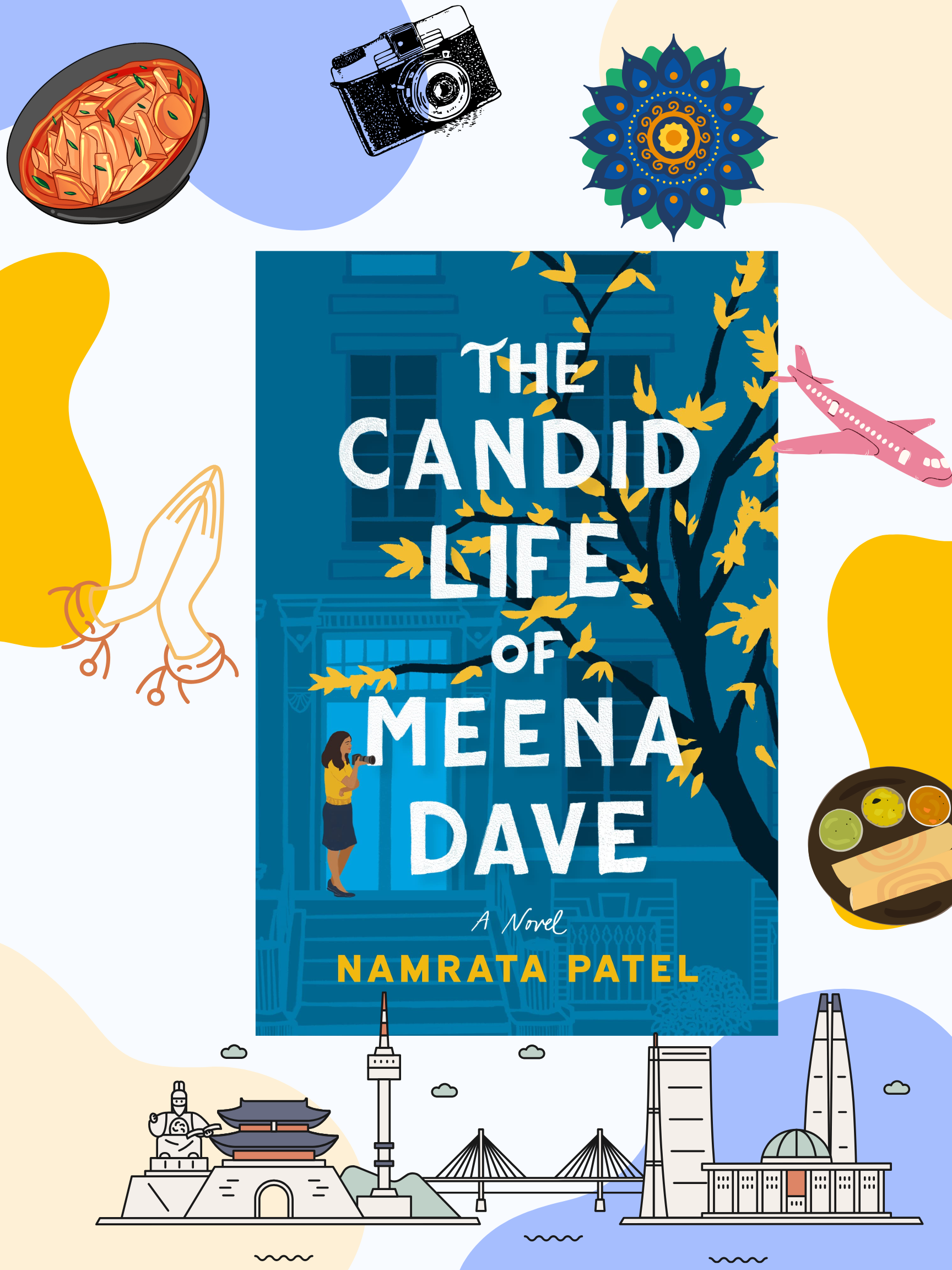
- Overall: ⭐⭐⭐
- Characters: 👍👍👍
- Spicy: N/A
- Writing: 🖊️🖊️🖊️
- Narration: 🗣️🗣️🗣️
Advice to a young person from an old person:
- Bravery isn’t in big battles; it is in small acts.
- Once you are over the age of 30 you can no longer blame the past or your parents for the way you are. Fix yourself, its within your control.
- There is always money in the banana stand. Sam has told me this is from a television program. What i infer from it is that subtext is often more telling than text.” Neha’s Notes
If you do not want to read this breakdown in fear of spoilers, please feel free to go here for a video breakdown of the review.
Please click here to buy this book because you are already a fan and know that I give bomb ass recommendations.
WTF Just Happened: Book Breakdown
Imagine: you’re exhausted. You are only back in the states because, out of some random turn of events, you find out that you inherited a brownstone…correction, a VICTORIAN brownstone in Boston. Come on! In this real estate market?! Yes, please. I am not a nomad—yes, I love traveling. However, moving as much as I did when I was a kid, I have found that settling in one place is good for the soul. Therapeutic even. I really related to Meena when it came to how settling in one place could help her feel…whole. Even if it’s a struggle to face yourself day after day without distractions.
We know that nothing in life is free. There are pros and cons to most situations that we face. In Meena’s case, a pro would be given a beautiful brownstone known as the Engineer’s House. A con: she has to own the home for at least a year. She can not just sell it. If she were to sell it, then she would have to go through the legal measures to sell—if she chose to do so.
For example, here is a pro-Sam. Sam lives across the hall and has an adorable dog named Wally. She actually meets Sam early on in the book due to Wally. He is the perfect little puppy and provides the perfect meet-cute. Con-Meena in no way, shape, or form is looking for a relationship. She is a go-getter. A wanderlust wondering with beautiful scenes to capture and interesting people to meet. Sam makes her think about her emotions—gross. Who wants that? (says the writer of this blog that also tries to use logic instead of feelings for most situations to avoid looking into the void of her soul.)
Pro of the generous inheritance: as someone that loves to try new foods and meet new people, she gets to meet the aunties. All of Indian descent, like herself and all the other owners of the Engineer’s House (EH from here on out). She has loved meeting new people and trying new foods since she was adopted by Hanna and Jameson Dave. They sound whiter than Bunny Bread.
Con of the EH…the aunties are literally some of the most intrusive, nosy people alive. Like barging into your house, starting cooking in your kitchen, and making themselves at home intrusively. As an introvert, this part of the book made me very uncomfortable. I am a lock your house up at all times and call before you even come over. And let’s face it, I don’t answer my phone very often, so how about you send me a text? Better yet, schedule a time to meet? Say…three to five business days? Anyways, back to the book.
The pro of the EH house is Meena now has a new base. Her previous base was in London with her best friend Zoe. Zoe is pretty smart and guesses early on that Meena is related to the aunties and Neha in some way. Neha was the fourth auntie in the EH. Neha is the one that left Meena the brownstone. A con of the EH is that Meena finds notes all around the home that are kind of cryptic and confusing. These notes seem to hint at secrets from the past, leaving Meena both intrigued and frustrated. As she deciphers each message, she starts to uncover hidden truths about her family and the legacy Neha left behind. Neha is a total hoarder and was able to stash away random notes like a squirrel does nuts in the winter.
As the book goes on, Meena really struggles with all these pros and cons of living in the EH because she is put in an environment that she has never been in. Putting down roots is not something that she has done since she was 16 and her adoptive parents passed away tragically. Honestly, the author did a really good job at offing the parents because… new fear unlocked.
Would I force my friends to read this book?
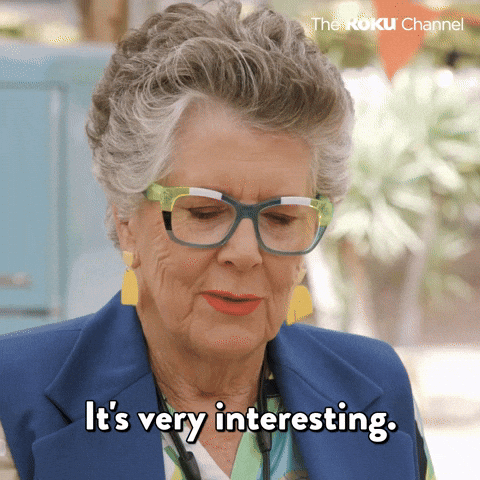
I really did enjoy this book. I am all about reading authors of different ethnicities, especially when they do such a good job as Namrata Patel did with including little details within her book of different cultures traditions. Meena states pretty early on that she feels like her skin color came with expectations. That right there had such a deep meaning to me because I know that is a human thought and emotion that I feel like people forget.
I loved that the simple question of “Where are you from?” came with so much weight to Meena because people from different cultures do not realize how that one question can insinuate a lot of different questions and feelings. You do not know what the intent of the question is when you are being asked that question. So when Meena is living in the EH, there is an expectation from her skin color, since it is the same as the rest of theirs, that she already knows about Diwali, she already knows how to make chai, and she already knows how to be “Indian.” In all actuality, she was adopted and raised by two white people who thought salt and pepper were the only ingredients needed to make flavor.
Meena continues to travel for work, often leaving a note on the door that she is gone. But all the while, a part of her is wanting to be back in Boston. In her home. With the nosy aunties and, moreover, with Sam. If you love a book that discusses different cultures, loss of loved ones, finding yourself with the help of others, and a really cute little love story thrown in, then I definitely recommend this book for you to read.
Tropes, Tea, and Twists
- Meet Cute—This happens due to Wally tangling himself with a leash around Meena when she first arrives in Boston.
- Insecurities: Meena has no idea where she comes from biologically and is thrown into a world that is thick with Gujarati traditions.
- Friends can be family. Since losing her only known family at 16, she now finds a kind of adopted family at the EH.
- Self-Discovery—Her self-discovery is both internal and external as she confronts her insecurities, vulnerabilities, and identity.
- Secret Past—Meena’s not knowing really plays a part in this book, and her not knowing reveals secrets that no one could see coming. The notes are wild to read, though, and try to guess how they play into Meena’s past.
- Slow-Burn Love Story—The back-and-forth between Sam and Meena is so freaking cute, and though it is not spicy, it is very, very sweet.
- Embracing Your Culture—this book does AMAZING at working through the American independence that is slammed into us and the South Asian collectivism that is a tradition that could get lost through independence.
Author Vibes: Was the writing GIVINGGGG?
The author does an amazing job at describing the location as well as the brownstone itself. As you walk through the apartment, you really know the layout of the apartment and the eccentricities of Neha throughout the decor. Lots of books everywhere. Lots of knick-knacks and color exploding everywhere in the room. However, there are personal belongings that you would normally see, such as pictures of family members. Indicating that she did not really have loved ones or used to be married. You really get the feel of the apartment as Meena arrives and what Neha’s vibe totally was. I felt like I was there, and she made me fall in love with the brownstone as Meena fell in love with it.
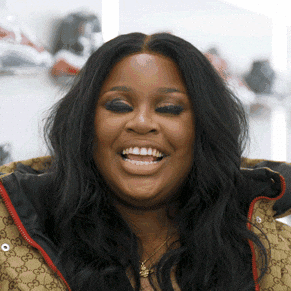
The door being locked is symbolic of how Meena keeps people out as well. The aunties want all the doors in the apartment complex to be unlocked at all times. Granted, they do have spare keys, but it is more of a symbolic reason. In their eyes, if you lock your door, then you lock them out of your life. You are not invested in what they have to offer, which is culture, acceptance, and love.
OMG—I want to go to Boston so bad now because the descriptions of the streets, the restaurants, and the culture were so freaking good! I felt like I was walking down the street with Meena and Sam coming back from their date at one point. Descriptive without weighing down the book with senseless details that don’t really give any sustenance to the book.
During the discussion of Indian holidays, Tanvi talks about how each culture celebrates differently depending on geographical location and generational differences. The celebration also has different meanings for the celebrations across different regions and religions. I personally did not know much about Diwali before reading this book. It is also known as the Festival of Lights and is a pretty big part of the Hindu culture, and I swear I wanted to try every dish that was served during the celebration. My favorite part was when Tanvi was talking to Meena about the culture and the celebrations and who celebrates and said, “We don’t have a word for ‘cousin’ in Gujarati.” Everyone is brother or sister, no matter how far or distant.” That is so freaking amazing and really plays into Meena’s internal struggle over not knowing her culture and losing her parents.
Voices in My Head, Book Edition

Although I mostly read the book, I did get a chance to listen to the narration as well through Kindle Unlimited. I thought that it was well done. None of the narration was overdone or exaggerated. As usual, I do not like to see what the narrator looks like because I feel like it can interfere with how I see the characters in my head. The narrator is Soneela Nankani, and according to her list of titles available on Amazon, she seems to have quite a few audiobooks under her belt. I have not read any of the books she has narrated except for this book. However, she is also a narrator in ‘Run Rose Run’ by Dolly Parton and James Patterson, and that is on my TBR list.
Books Fictional Coordinates
Yes, please. I think the location and the description of the area where this book is located were top-notch. Meena is officially from Northampton, Massachusetts. Other than the very end of this book, there is not much said about that area. However, the brownstone is located in Back Bay, Boston, at Ten Marlborough Street. Not knowing much about this area, just the description that Back Bay is a hub of OG Bostonians, college students, and tourists made all the difference in giving the best vibe.

As we know how gentrification works, this area was not depicted as being very gentrified. The area seems loved and lived in, like an old pair of boots that you take really good care of because they are made of a good quality material. I mean, all of these restaurants and places are mentioned in the book.
Bell in Hand an old put around the corer from the famous union oyster house:

Buttermilk & Burbon:

Matinis at the Oak Bar:

Dinner at Deuxave:

Charles River:

“Boston winter is incomparable. At first, its like a painting of snow-covered branches. Quite hovers over the city. Then the scenery changes from bright white to black and sooty. I am watching two college students dig out a car on the street, their faces red from exertion.” Neha’s Notes, Chapter 13 PG 79
Tell me, when do we book our flights to this beautiful city?
Expectations, Stereotypes, & Other Fun Lies
This is the part where we talk about possible triggers or debatable happenings in the book. As always, I will do my best to not have any spoilers.
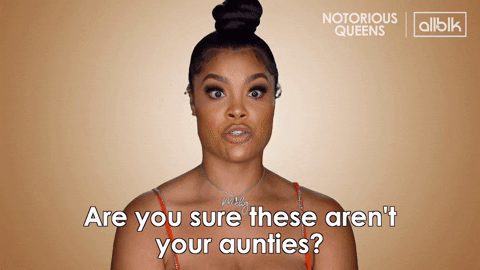
- The “Aunties” Stereotype
- Tanvi, Sabina, and Uma are what one would expect to be the typical nosy but well-meaning immigrant aunt archetype. For example, barging into your home uninvited and cleaning when you didn’t ask for it to be cleaned. Setting you up with a “nice boy.” They expect Meena to automatically assimilate to how the EH is run. Keep your door open. Make chai. You don’t know how to wear a sari? They assume that Meena needs to know how to do all these things to be an ‘authentic’ woman with South Asian heritage.
- Culturally Disconnected
- Meena was raised very white American and is not quite shamed by the aunties for not being “brown” enough in the sense that the aunts do not understand why Meena wants to lock her door or even enjoy instant coffee. Not everyone likes chai, okay, aunties?! (even though…I do.)
- Hurry up and have babies
- The aunties really push Sam and Meena together. They are both similar in age. Both similar in ethnicity but different in so many ways. It is almost like a woman cannot be happy without a husband. Even Neha gets married out of expectation and not so much love. One does not always correlate to the other. Neha said, “My husband left three days ago. I haven’t gone to look for him. In fact, I wish him well. We did not suit, married only because we had both given in to societal convention. He was constantly seeking happiness. An elusive, subjective, situational concept. He’s a regular sort of person. I used the present tense because I do not believe he’s dead.” This made me sad for Neha because I am not sure if she really loved anything other than words and did not think she was strong enough to not give in to marriage by her culture’s standards.
- I.N.D.E.P.E.N.D.E.N.C.E-Do you know what that means?
- Due to the trauma in Meena’s adolescence, she thinks that being independent means keeping people at arm’s length so she can never get hurt again. She is very smart with her money; she only keeps what she can pack in a suitcase. She never puts down roots; that is what she thinks independence is. However, asking for help, being close to others, and putting down roots can also be signs of being true to yourself. You do not lose yourself just because you let others in.
- To Bed or not to Bed-that is the question…
- The book does go into a little detail about women’s expectations to stay a virgin until they are married and how it is especially expected in the South Asian culture. There is a lot of insinuation that Meena doesn’t sleep around but that she for sure is not a virgin. It is more like she just needs an emotional connection with a guy before she will mess around with him.
The Plot’s Favorite Children
- Meena Dave
- Meena is a nomadic photographer and the main star of the show. After losing her parents when she was 16, she went into foster care and has really been on the road ever since. This trauma really did leave a huge hole in her emotional growth due to her not really allowing herself to heal from the tremendous loss. She is incredibly independent and often struggles with social-emotional connections. Often feeling guilty if she does not give the same amount of love and attention to those around her as she receives. She wants to, but she is scared to get close to anyone because that would admit to being vulnerable, and after losing the only family she has ever known, it is extremely scary for her. I loved Meena’s growth as a person throughout this book, and she is very relatable.
- Neha Patel
- Neha A. Patel. Sam describes her as “extraordinary in an unexpected way. So smart that she had to release spurts of unpredictability.” The aunties describe her as difficult, picky, and not a joiner. After a while they stopped asking her to do things. But through the notes Meena found, she found that she was lonely. Neha spent a lot of time by herself and often found herself almost manipulating those around her by most of her interactions having a different meaning than most would have. She lived in the brownstone out of inheritance, and her parents went back to India, but she stayed. Even got married. But apparently he left one day and just…never came back. So why would she live in a brownstone where she didn’t like any of the occupants and they didn’t like her…pure stubbornness.
- Sameer “Sam” Vora
- Sam is the ultimate hot neighbor with a very cute dog. Very intelligent and open to conversation with Meena as soon as they meet, which puts Meena at ease right away. Sam crushes on Meena right away but remains very respectful and does not push too hard. Sam does have some baggage of his own, though, that is later explained in the book. But it is tied back to traditions that are a huge part of living at EH. Sam is almost too nice to Meena while she is going through her journey but doesn’t allow her to walk all over him, which is really nice. He remains the light-hearted love interest that really helps Meena get out of her own way.
- Sabina
- Sabina, Sabina, Sabina…she is definitely a straight shooter. The no-nonsense neighbor and one of the four owners of the EH, she is the self-appointed boss of the building, responsible for the building and “its family.” She is married to Jiten, who is an investment banker, and he really seems like a kindred spirit to Sabina. Sabina does not sugarcoat anything other than the desserts she makes for holiday meals. Sabina and Neha did not like each other. That is very clear with how spiteful they were toward each other. Yet, Sabina cleaned Neha’s apartment when she was too busy to do so herself—or Sabina used it as an excuse to nit-pick; I am not sure. Sabina is who she is, that is for sure. She is the auntie that will tell you that your hair is a mess and make you an appointment at the best hair salon in Boston.
- Tanvi
- Tanvi was my favorite of the neighbors. Also one of the four owners of the EH. She is married to Piyush “Pi,” who is a math professor and seems charming and funny. Tanvi is warm and gentle to Meena, often being the person who Meena can connect to the most. I got the feeling that out of all of the aunties, Tanvi was probably the most like her parents. She is very supportive but doesn’t let Meena get away with her deflective ways. Answers whatever questions Meena might have with a bright smile on her face. I want Tanvi’s confidence and her artistic eye.
- Uma
- Uma is the aunt who kind of came in as the underdog. Very focused on her job as a professor and is also one of the four owners. She is married to Vin, the lawyer. You would think that Uma and Neha would have gotten along great since Neha wrote dictionaries and loved to read, but nope. Apparently, according to Uma, Neha “wore ‘bitch’ like a badge,” making it very difficult for them to get along. Both intellectuals—yes. But I have a feeling they were almost too much like each other to really get along and more likely to get on each other’s nerves.
Backup Dancers of the Plot
- Hanna Dave
- Adopted mother of Meena. Hanna seemed very loving. Often described by Meena as being “pragmatic to a fault.” Meena misses her mother dearly, though, so she had to be a good mom. Meena never had any desire to find her birthmother because she had Hanna. Meena says that if she were sick, Hanna would stroke her hair and make her feel safe and loved. When Meena was not asked to the freshman formal, Hanna brought Meena a dress anyways, and the whole family had their own little formal at home. Hanna really loved Meena. You can tell from Meena’s memories of her mother.
- Jameson Dave
- Adopted dad of Meena. While Hanna was pragmatic, Jameson seemed to be the exact opposite. Jameson bought Meena a journal to fill with dreams, while Hanna gave her a list of advice along with a book of prayers. He always seemed to really encourage Meena’s little oddities and wanted to see her spread her wings and fly. I got the impression that is one of the reasons why she is a photographer because she can see the beautiful parts of people that make them uniquely themselves.
- Wally
- Sam’s wonderful mutt. He was a gift from Neha to Sam just to be spiteful to Sabina. However, he is an integral part of the book. Often causing some kind of mayhem around the building and being an overall good boy. Though a breed is not specifically said, he is said to be going to be a big boy. Sam’s parents never let him have a dog, so in Neha’s will, she assigned one to Sam. He is often the icebreaker between Sam and Meena and also really lets the readers see Meena’s softer side.
- Zoe
- Meena’s best friend, who she met at George Washington University during her freshman year. Zoe is Meena’s first anchor into having a familial connection to someone again after she loses her parents. Zoe is a free spirit. Life of the party. Also the one constant Meena has in her life. The only thing is Zoe also lives in London. At one point in the book, Zoe mentions that since her parents divorced when she was younger, she collects people in her friend group and never lets them leave, which I found extremely charming. I think everyone wants a friend like that. No matter how inside your head you get, no matter how introverted you are, they are there. No judgment. Just love.
Step Into This Story If You Like…
- Self-Discovery
- Choosing your own Family
- Leading Lady Fiction
- Protagonist in Transition
- Grief and Healing
- Adoption Stories
- Stories about Belonging and Identity
- Stories with strong South Asian characters
- Slow-Burn Romance
- Funny Animal Side Characters
Highlighter Worthy Moments
“Never trust a person who is too lazy to brew tea. The only use for generic tea bags is to reduce puffiness around the eyes. If you drink this stuff, I do not want to know you.” Neha’s Notes, Chapter Two, PG 12
“Everything is temporary. She’d learned that from a Buddhist monk in Burma. She’d adopted it as her mantra. When her mind wandered to what had once been, she’d rein it back to the present. For now, she was here, and she had things to do”. Meena, inner dialog, Chapter Three PG 21
“My work is my life, and my passion is to do it well, to continually improve.” Neha’s Notes, Chapter Seven PG 47
“The Scarlet Letter: “She had not known the weight, until she felt the freedom.” Neha’s Notes, Chapter Eleven PG 65-66
“I am not a nice person. When you were born, I promised you a life away from here, from me. I don’t always keep my promises. Things don’t always go according to plan.” Neha’s Notes, Chapter 13 PG 80
“We believe in making mistakes and having no regrets. As long as it hurts no one.” Odkell
“But it is OK if you hurt yourself?”
He struggled. “Why not? It is your experience. If you die, iti s a good way to go.”
“You’re not afraid?”
“Of pain? No. I am a good healer,” Odkell answered. “I have scars as my memories. To fear is to torture yourself”- Meena and Odkell Chapter 13 page 90“Sam is my favorite. Of all who have come and gone, he’s the one who gets me. He lets me be. Right now, he’s helping Sabina with the roses in the back garden. He has patience I do not possess. I would prefer the back garden to be messy and grow wild. There is beauty in chaos.” Neha’s Notes, Chapter 17 PG 108
“There is no order to life. While time is linear, we do not have to live within its confines.” Neha’s Notes, Chapter 18 PG 114
“Aloneness was a choice, but loneliness felt different. A disconnection from others that felt more like a condition of how she lived her life” Meena’s inner dialog Chapter 19 PG 116
“Do you like living here?” Meena asked. Sam slid his hands into the pockets of his jeans. “I do.” “Because of its legacy?” “Because it’s home” Meena admired the simplicity of the statement. -Meena and Sam Chapter 21 pages 133 &134
“Because it’s better not to have anyone care about you, so you don’t have to care about them.”
“What’s wrong with caring?”
“Because when you lose them, it can break you.” Meena and Sam Chapter 25 PG 157“You loved someone you disliked?” Uma laughed. “People do it all the time. It’s called family.” Meena and Uma discussion. Chapter 42 Page 261
Please click here to buy this book because you are already a fan and know that I give bomb ass recommendations.
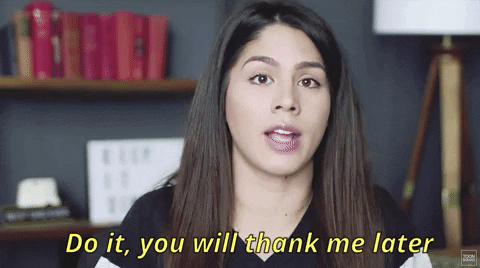

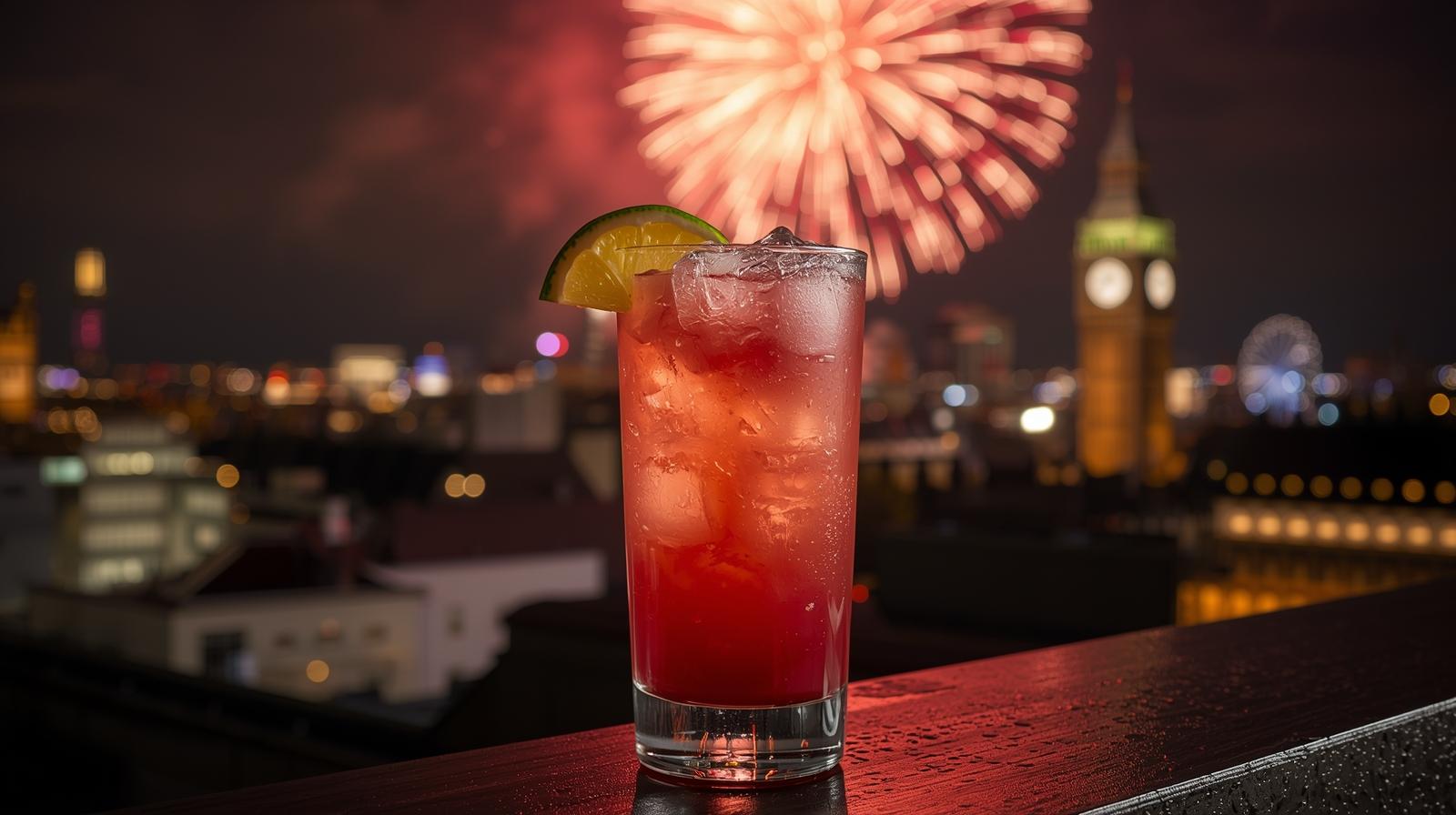
Leave a Reply